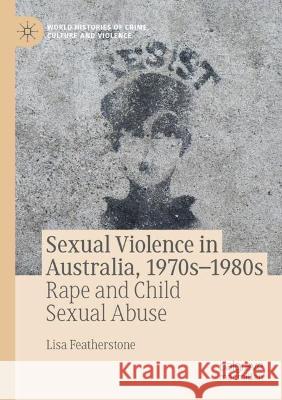Sexual Violence in Australia, 1970s-1980s: Rape and Child Sexual Abuse » książka
topmenu
Sexual Violence in Australia, 1970s-1980s: Rape and Child Sexual Abuse
ISBN-13: 9783030733124 / Angielski / Miękka / 2022
This book explores sexual violence and crime in Australia in the 1970s and 1980s, a period of intense social and legal change. Driven by the sexual revolutions, second wave feminism, and ideas of the rights of the child, there was a new public interest in the sexual assault of women and children. Sexual abuse was studied, surveyed and discussed more than ever before in Australian society. Yet, despite this, there remained substantial inaction, by government, from community and on the part of individuals. This book examines several difficult questions of our recent history: why did Australia not act more firmly to eradicate rape and child sexual abuse? What prevented our culture from looking seriously at trauma? How did we fail to protect victim-survivors? Rich in social and legal history, this study takes readers into the world of victims of sexual crime, and into the wider community that had to deal with sexual violence. At the core of this book is the question that resonates deeply right now: why does sexual violence appear seemingly insurmountable, despite significant change?











